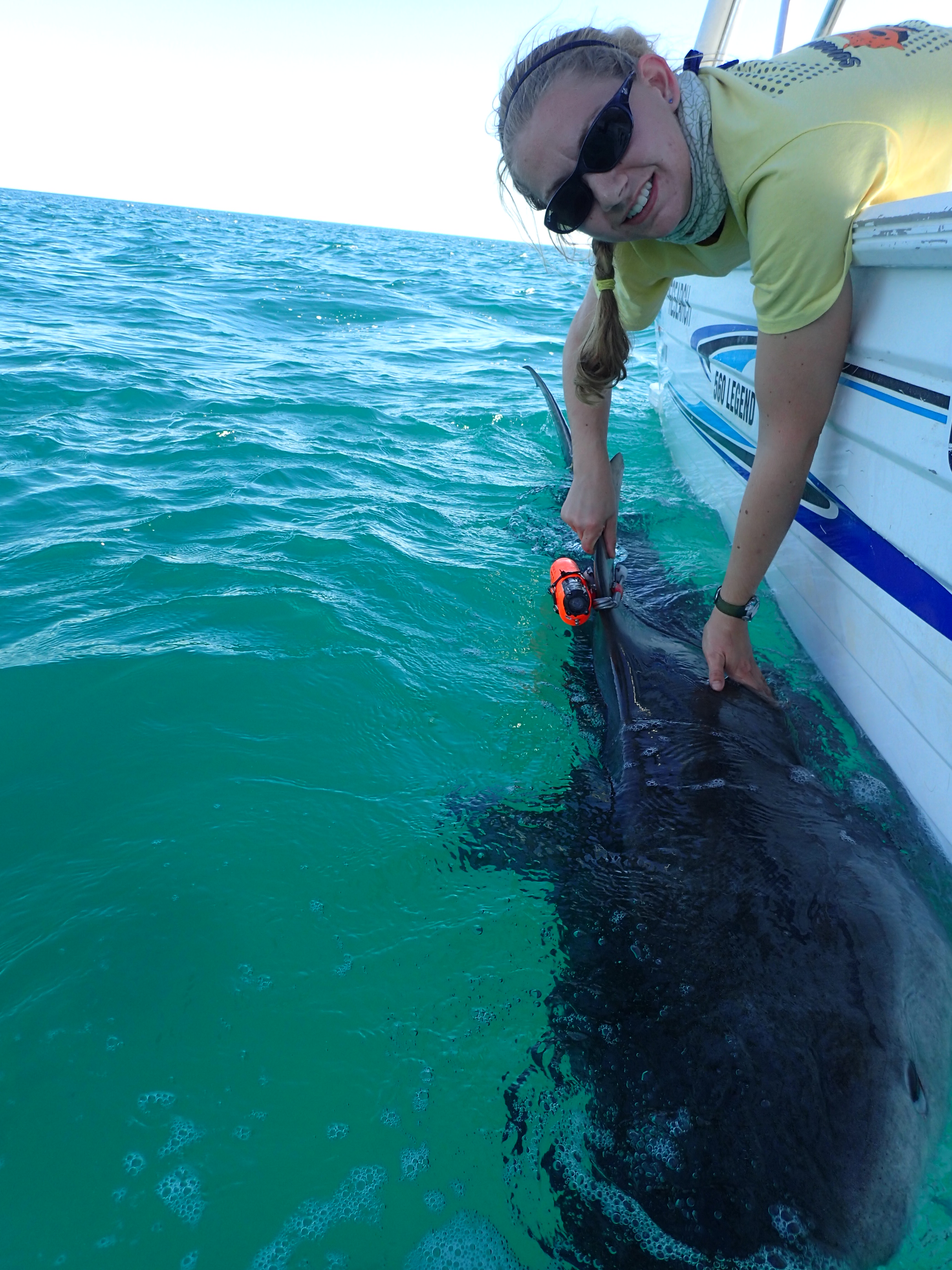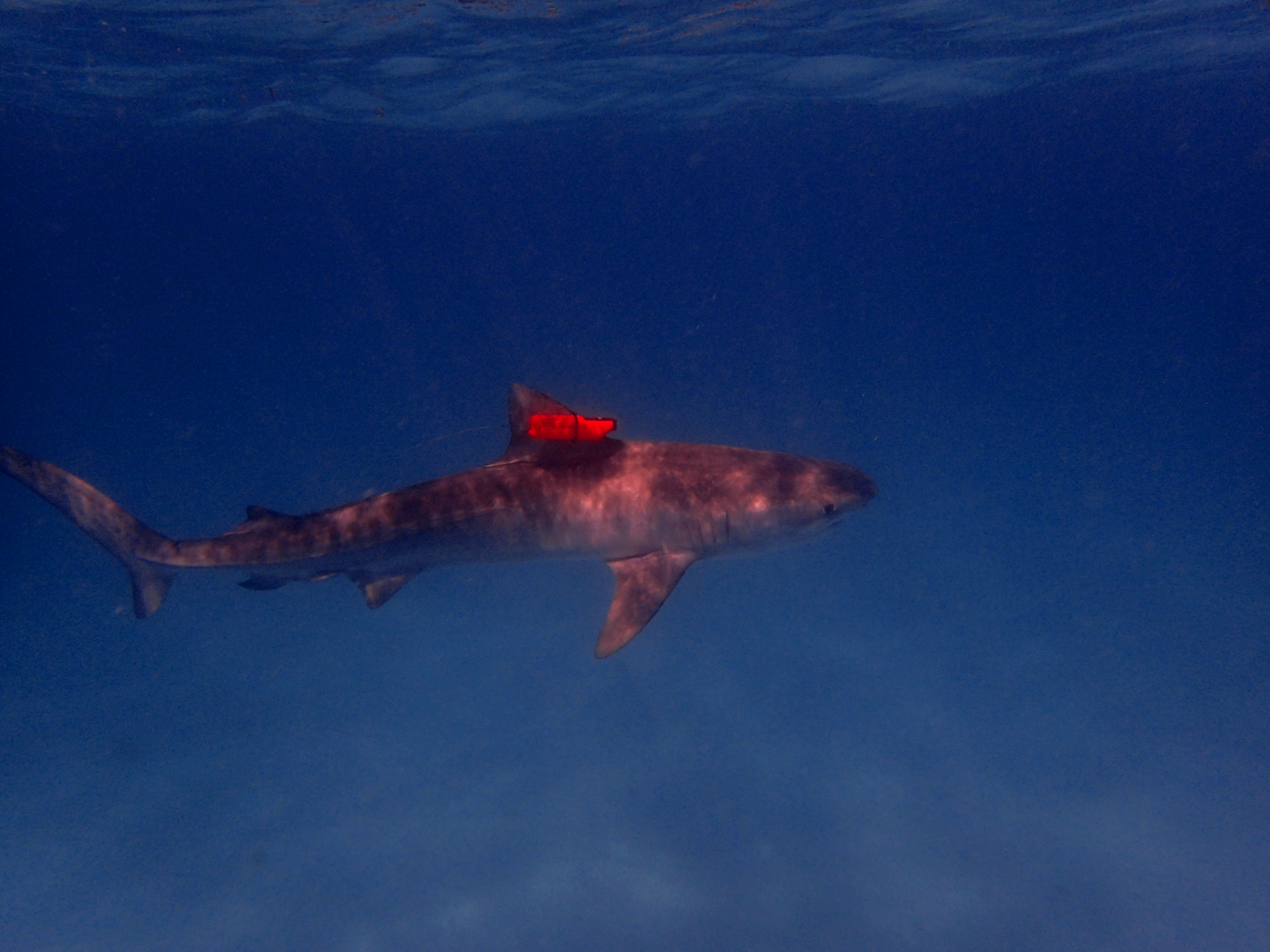About This Project
Tiger sharks are among the strangest behaving sharks in our oceans. They eat everything from turtles to car tires and continually dive up and down. However, we know next to nothing about their hunting and movement strategies. Characterizing these are important to effectively manage tiger shark populations and understand ecosystem dynamics. This project will tag up to 30 tiger sharks at Ningaloo Reef, recording video, depth and acceleration to better understand these patterns.
Ask the Scientists
Join The DiscussionWhat is the context of this research?
Tiger sharks are known to continuously bounce dive through the water column, however whether this is a hunting, thermoregulation, navigation or energy conservation strategy is unknown. The development of advanced biologging tags with video cameras allows us to get a close up and remote view of their behavior. Our research group has managed to deploy four of these tags for very short periods at Ningaloo Reef, however time and cost constraints have limited deployment times and further sampling.
What is the significance of this project?
Tiger sharks are top predators in tropical and warm temperate marine ecosystems. They regulate the structure of ecosystems through top down effects in food chains. By concurrently recording video and environmental factors we want to understand the role of the tiger shark in the Ningaloo Reef system. Once we have a better understanding of the patterns and drivers of their vertical movements we can help conserve the species and predict how their movements may change with a changing climate.
What are the goals of the project?
We want to know the drivers of tiger shark vertical movement patterns. To do this we will tag up to 30 sharks with CATS cam and diary tags at Ningaloo Reef in Western Australia over a period of one month. Tags will be recovered after 24-48 hour deployments and the data downloaded.
Depth data will tell us the patterns of vertical movement. Combining these data with the analysis of other recorded parameters and video will allow us to determine the drivers of these patterns. Video analysis will give us remote insight into the hunting strategies of tiger sharks and we can also use these videos as educational tools online to share how these beautiful animals behave.
Budget
As most equipment has been purchased for previous field work and is reusable, funding would primarily support the costs associated with working at a remote field station in Western Australia. Sammy and Karissa and their equipment will need to be transported over 1100 km (approximately 700 miles) to the Coral Bay Research Station. The funding would support one month of accommodation giving us time to tag up to 30 tiger sharks with our biologging tags.
Endorsed by
Meet the Team
Sammy Andrzejaczek
I grew up snorkeling and surfing in the beautiful waters of Western Australia and knew from an early age that when I grew up I wanted to be a marine biologist. I completed my Bachelor's Degree in Queensland and developed a fascination with all things shark. My honours thesis on whale sharks further amplified that fascination and my love for field work.
In 2015 I began my PhD back in Perth examining the patterns and drivers of vertical movements in sharks. I hope for this project to become the cornerstone of my thesis and to compare what we find with other shark species around the world.
Karissa Lear
I have always been interested in marine biology, and started working with sharks three years ago at Mote Marine Laboratory in Florida, using electronic tagging techniques to study the behaviour and physiology of coastal sharks. I recently moved to Australia to start my PhD at Murdoch University in Perth. My project uses accelerometers to study how temperature affects the behaviour and physiology of sawfish and sharks in Western Australia, which will help scientists to gain a better picture of how these animals will be affected by climate change in the region.
Additional Information
Rewards for supporters:
$10: Supporter will be publicly thanked by our researchers on Twitter and Facebook
$50: Supporter will receive a print photo of a tagged tiger shark from our field trip
$100: Supporter will be sent a copy of a highlights clip from videos recorded on tagged tiger sharks
Project Backers
- 68Backers
- 100%Funded
- $3,406Total Donations
- $50.09Average Donation





